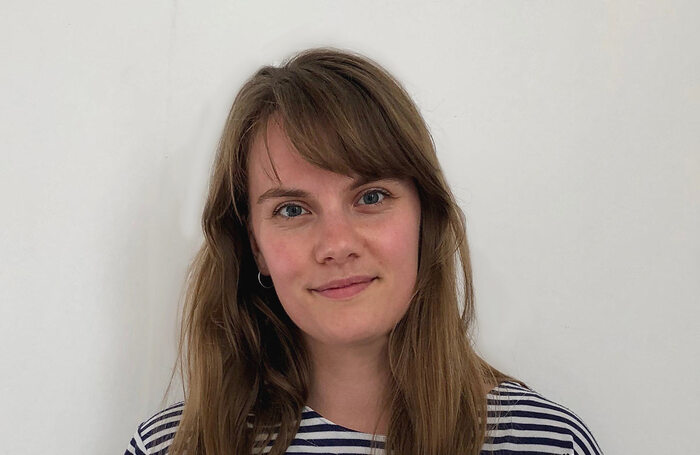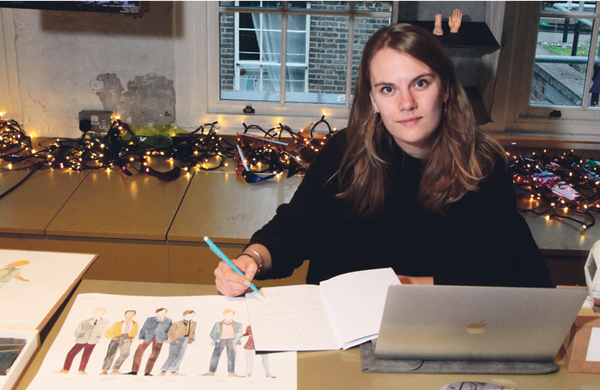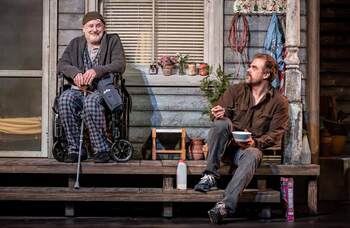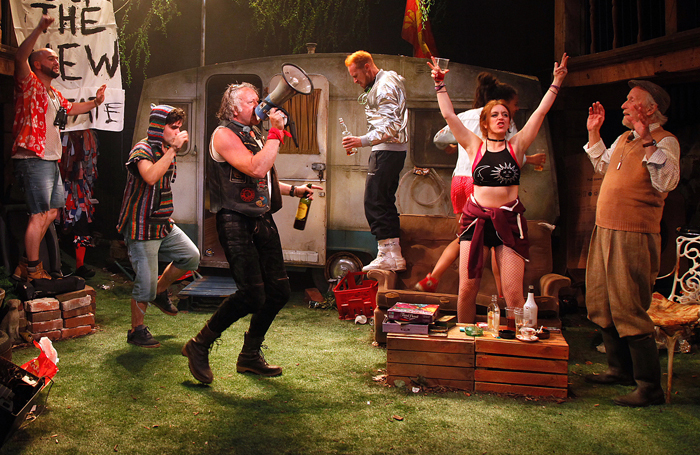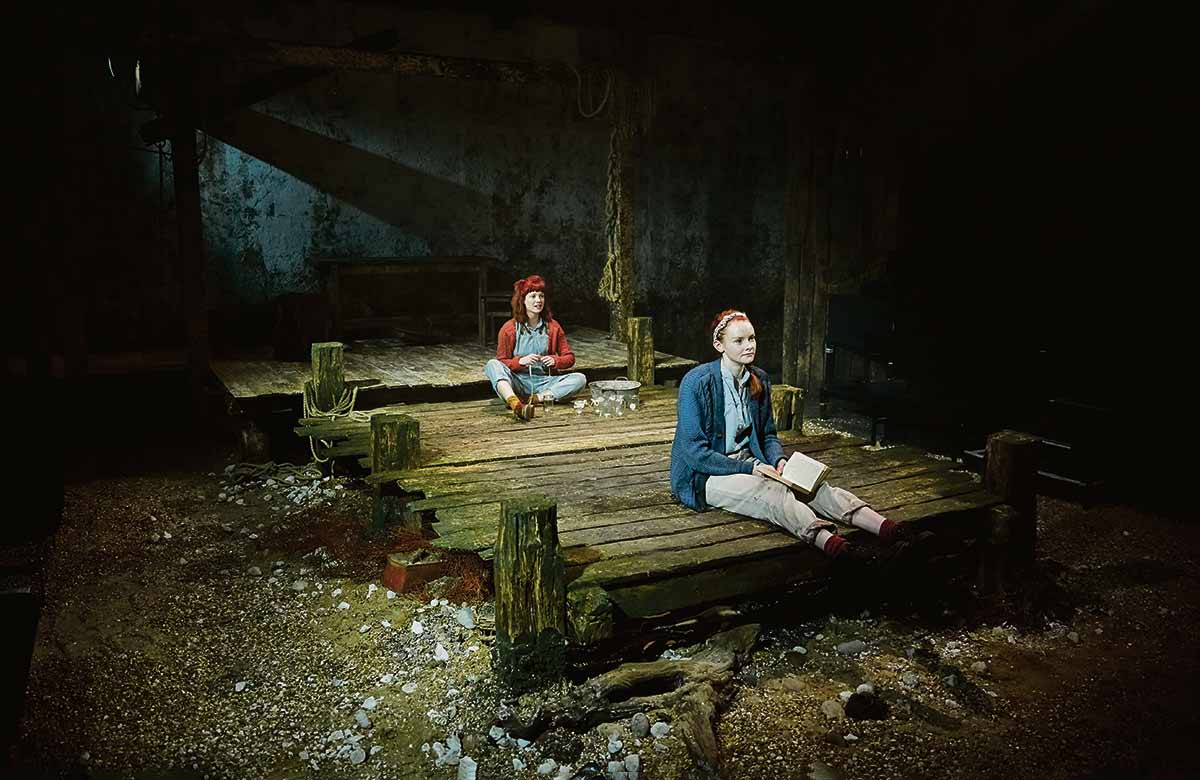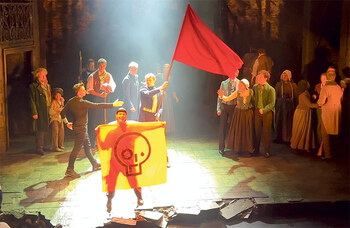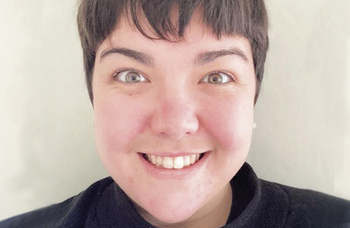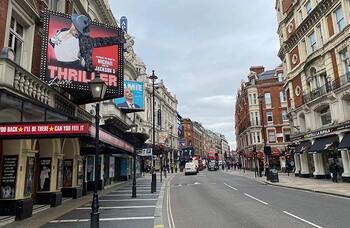Designer Frankie Bradshaw: 'My proudest moment was when Lynette Linton and I won The Stage Debut award'
Frankie Bradshaw has designed eight shows opening this year, and has a passion for sustainable sets. She tells Fergus Morgan about moments that made up her career, including research trips to Harlem and winning The Stage Debut award with Lynette Linton
Over the past eight years, Frankie Bradshaw has established a reputation as a designer with an eye for detail. With Orca at the Southwark Playhouse, Jerusalem at Newbury’s Watermill Theatre, Sweat at London’s Donmar Warehouse and many more, she has earned acclaim for her evocative, richly realised sets – often the result of fact-finding, atmosphere absorbing research trips.
“I think I am known as a designer who can convey detail successfully, but I’m keen not to pigeonhole myself,” she says. “I also enjoy more illustrative, conceptual projects. I like designs to feel rich and evocative. Fundamentally, I am interested in the patina of people’s lives on places.”
Born in London in 1992, Bradshaw first completed a foundation course at Wimbledon College of Arts, and considered pursuing painting professionally but decided on design instead. “I realised that the life of a fine artist is a lonely one,” she says. “I was really excited by working with other people and their ideas, and by the fusion of literature, dance, music and art in theatre.”
Today, she lives in Peckham, has a small studio in Kennington, and cycles between the two. Similar to most designers, she is always working on multiple projects simultaneously: the employment conditions for designers make focusing on individual shows, one after the other, pretty much impossible.
“During the pandemic, there were a lot of conversations about improving working conditions, and I think progress has been made,” Bradshaw says. “People are more open to flexible ways of working now. There is still a long way to go, though, and while we are still in this scramble to free ourselves from the chaos of the pandemic, stuff like this just isn’t at the forefront of producers’ minds.”
What production made you fall in love with theatre?
I went to see Billy Elliot with my school when I was 12. I was mesmerised by the explosion of dance and music. My friends and I were so hooked that we used to stage our own version of Electricity in the girl’s changing rooms at school. It was not good.
What are you finding inspiring at the moment?
I’m finding the push towards sustainability within the design sector very galvanising. It takes time because it involves exploring different methodologies, materials and approaches, but so many people are bringing forward so many brilliant ideas.
What do you wish you could change about the performing arts?
Like most people, the number one thing for me is funding. I just wish the arts were funded better in this country. If they were, our industry would be so much fairer, so much more accessible and so much healthier.
What work do you really want to design?
I’d like to dip my toe into the world of dance. I’d like to work on a newly choreographed ballet. I’m watching a lot of dance at the moment, and I have been an associate designer on one new dance work, but I’d love to spread my wings a bit in that direction.
What is the worst thing that has happened to you in theatre?
I did a fringe show that was set in a gigantic warehouse, with the stage underneath a huge tent rigged on five pads of Velcro. The night I invited a prospective agent to come, the Velcro failed, and the tent gradually fell on top of the cast. Thankfully, the agent agreed to represent me anyway.
What is the best thing that has happened to you in theatre?
My proudest moment was when Lynette Linton and I jointly won The Stage Debut award for best creative West End debut for Sweat in 2019. The director-designer partnership doesn’t get mentioned that often, but that felt like a celebration of it.
What projects are you involved in at the moment?
Mad House is running in the West End until early September. It’s a play by Theresa Rebeck about a dysfunctional family, starring David Harbour and Bill Pullman. It is set in an American country house that was once gorgeous but has now fallen to seed. I didn’t have time for a research trip, unfortunately, but I visited rural Pennsylvania for Sweat, so it’s not a setting that is totally foreign to me. Blues for an Alabama Sky opens at the National Theatre in September, too. It’s set in Harlem. Lynette is directing, and we went on a research trip to Harlem a few months ago. The play is set during the Harlem Renaissance in the 1930s, at the tail end of the amazing explosion of Black culture, literature and poetry. We really wanted to tap into that. Then, Local Hero opens at Chichester Festival Theatre in October. It’s David Greig’s adaptation of the Bill Forsyth film, with music and lyrics from Mark Knopfler of Dire Straits and Daniel Evans directing. I’ve spent some time on Skye already, so I didn’t need a research trip.
Opinion
Recommended for you
Opinion
Recommended for you
Most Read
Across The Stage this weekYour subscription helps ensure our journalism can continue
Invest in The Stage today with a subscription starting at just £7.99
